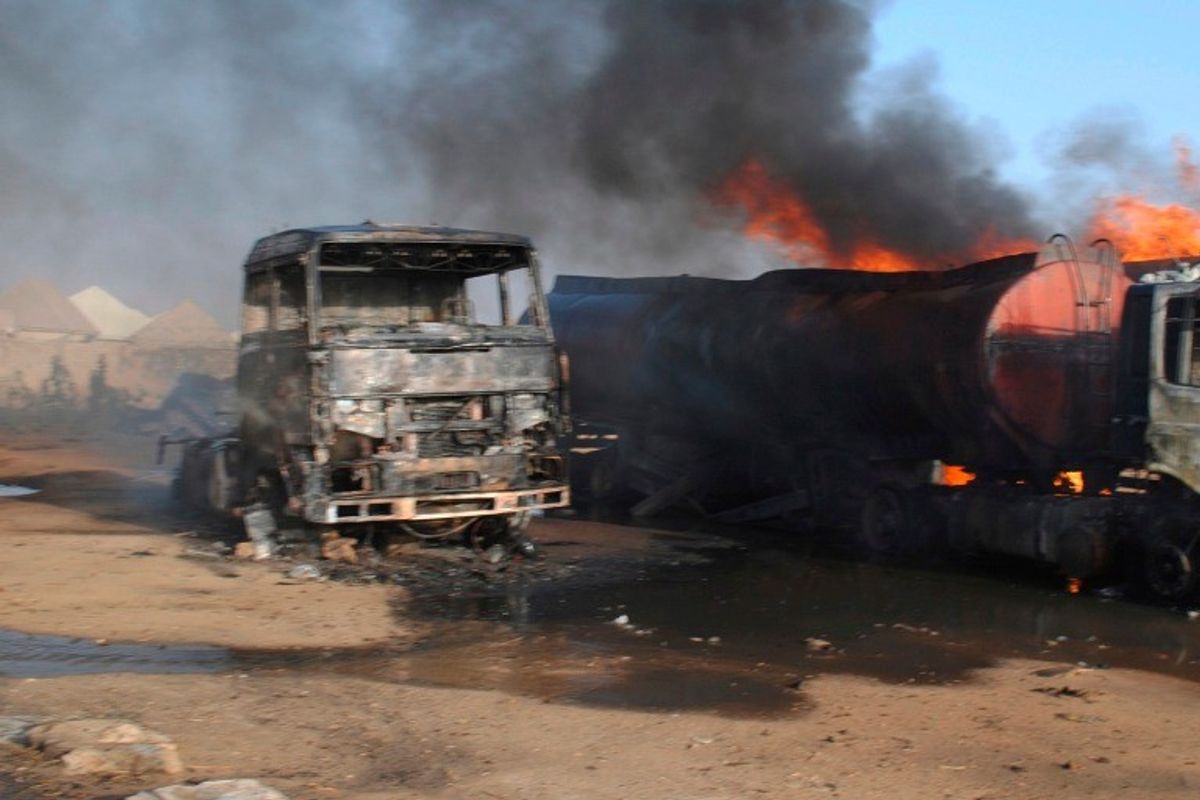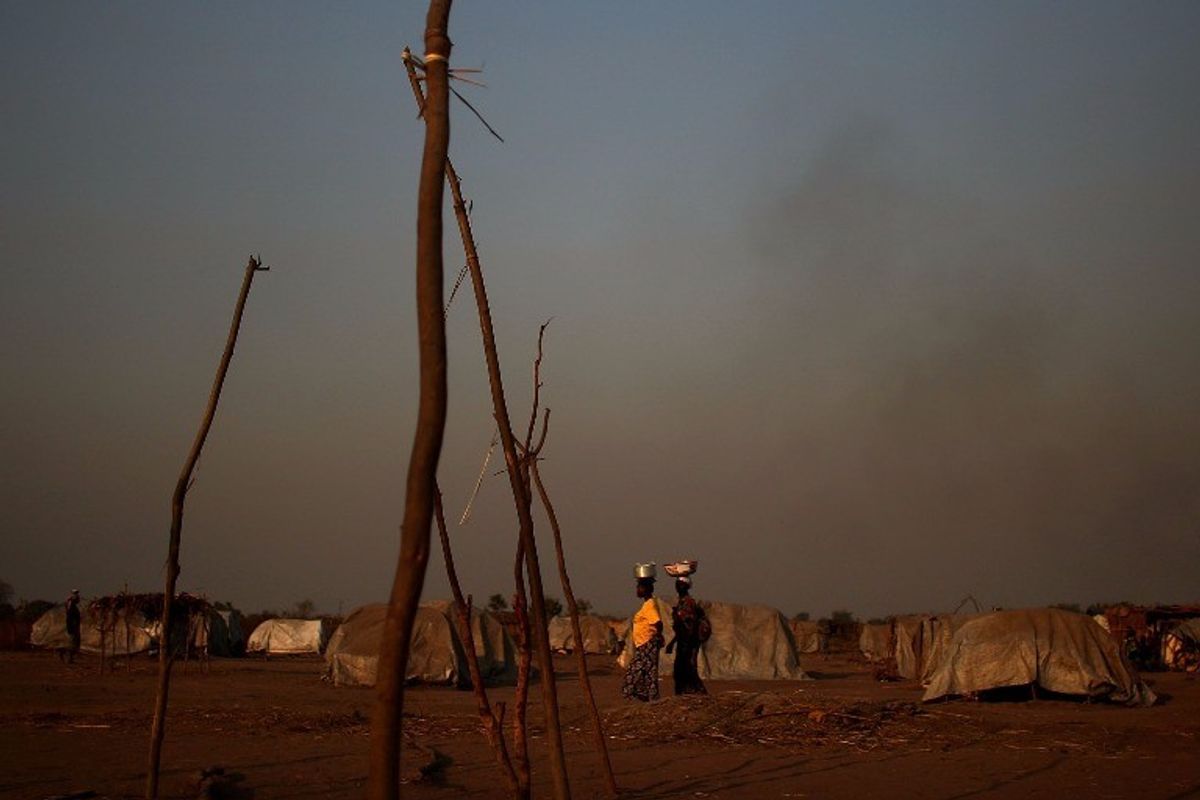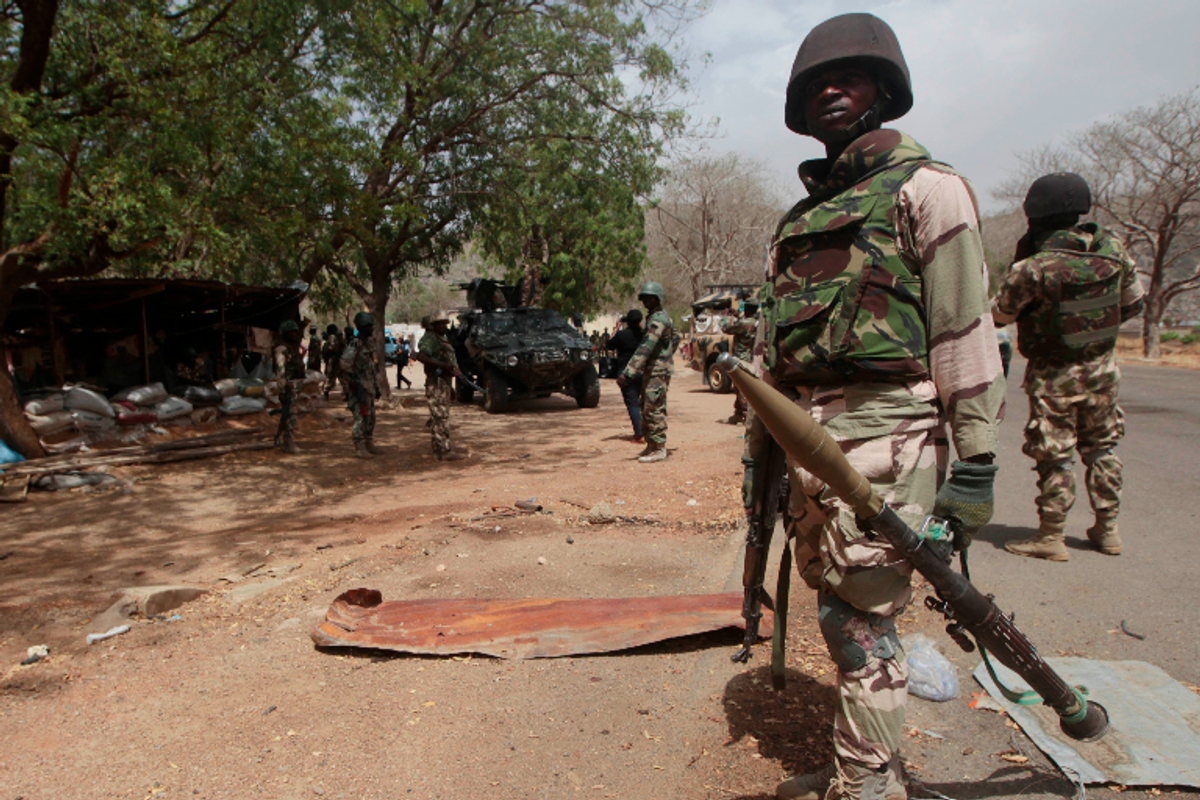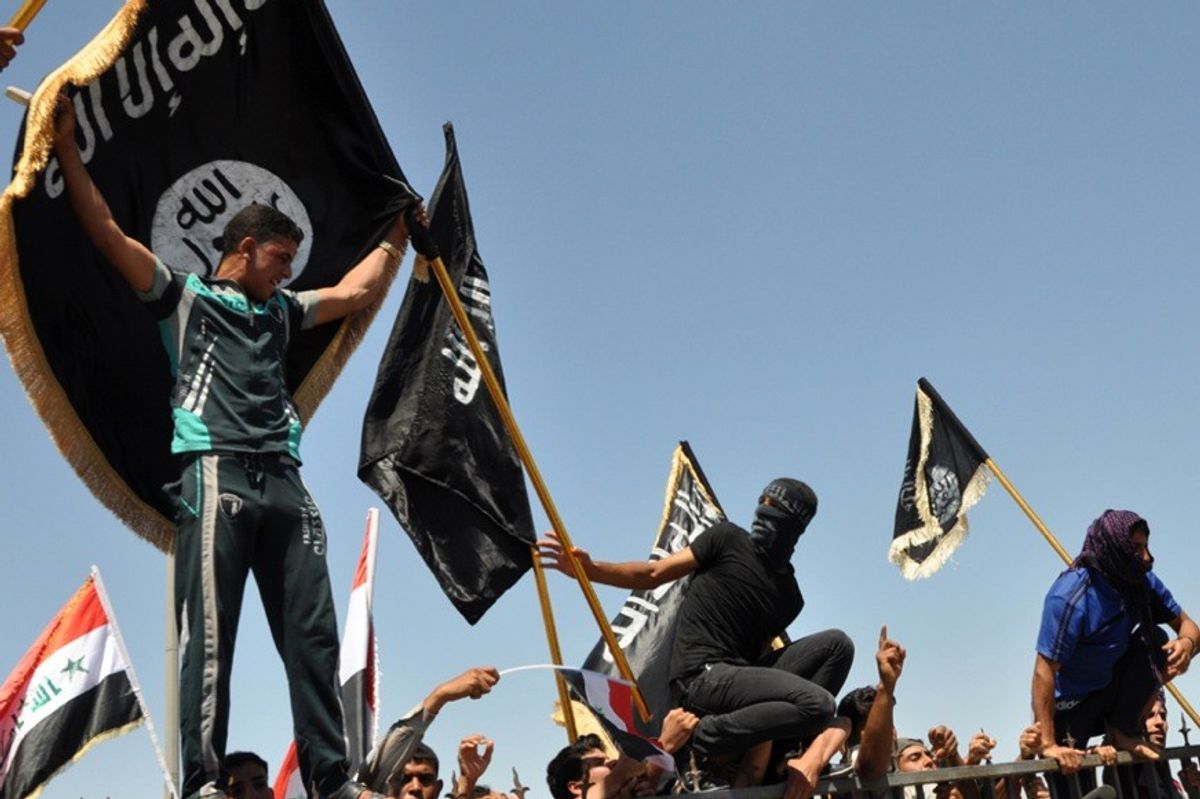Nigeria faces three distinct security crises, with one common thread: failure of governance. Terrorist group Boko Haram continues to wreak havoc in the north, a conflict over land between farmers and nomadic herdsmen rages in the middle of the country, and a renewed insurgency in the south – in the Niger Delta region – threatens to deplete oil production and government revenue.
“These conflicts are a reflection both of the weakness of the state and its ability to project rule of law beyond Nigeria’s major cities, and the unsustainable nature of the age-old solutions that it attempts, namely cooptation of violent actors, short-term use of patronage and payoffs, and empowering local strongmen to ‘keep a lid’ on communal conflicts on behalf of the government,” Matthew Page, a fellow at the Council on Foreign Relations, tells The Cipher Brief.
Since the beginning of this year, the Niger Delta conflict has become of increasing concern. The attacks on oil infrastructure in the region were largely quelled after a surge of violence from around 2005-2009, due to a government-led amnesty program for militants responsible for blowing up the pipelines. But attacks have picked back up.
Page, who previously worked in the U.S. intelligence community and is one of the community’s top experts on Nigeria, says what is happening now in the Niger Delta is “a racketeering operation, pure and simple.”
The amnesty deal, Page says, had the affect of completely criminalizing the Niger Delta conflict. “Since then, the modus operandi of aspiring militants has been to cause so much trouble (and economic pain) for the federal and state governments as to be bought off or mollified with direct cash payments, lucrative contracts, or juicy appointments,” he explains.
When current Nigerian president Muhammadu Buhari came to power last year, he won on a platform of anti-corruption, which included an attempt to roll back the amnesty program. Some speculate this triggered the latest wave of violence in the Niger Delta.
C. Nna-Emeka Okereke – a senior research fellow at the National Defence College in Abuja, Nigeria and a Cipher Brief expert – says the renewed militancy could be “driven by frustrations suffered by several mid-level commanders and foot soldiers in the pre-2009 armed militancy, who felt short-changed in the amnesty deal and now have no prospects of a better settlement under President Muhammadu Buhari.”
Okereke adds that another explanation is the failure of former President Goodluck Jonathan – a native of the Niger Delta – to secure a second term as president in 2015. He says some argue this “could have sustained the gains of former militants who had contracts to protect oil installations in the region [via the 2009 amnesty agreement].”
Whether this is accurate, it has caused Buhari to begin backtracking on ending the amnesty program, says former U.S. Ambassador to Nigeria (2004-2007) John Campbell.
But Campbell, who is now a senior fellow for Africa Policy Studies at the Council on Foreign Relations, tells The Cipher Brief, although there is certainly an element of racketeering (stemming from the payoff system established seven years ago), the attacks on oil infrastructure in the Niger Delta are not new and are driven by a number of forces.
One factor, says Campbell, is “a deep sense of grievance amongst the Delta population that the region that produces Nigeria’s wealth does not benefit from it proportionally.” Another, he adds, is “environmental degradation: water pollution, the flaring of gas, the destruction of fishing grounds, and so forth.”
Now, various militia groups are springing up across the Delta – demanding that oil money be distributed to the citizens of the region that supports Nigeria’s oil industry, a sector that provides the federal government with more than 70 percent of its revenue.
On August 10, a previously unknown group – Delta Greenland Justice Mandate – claimed it attacked a pipeline belonging to Nigeria’s state oil company NNPC.
The most established group of this current wave of attacks is the Niger Delta Avengers (NDA). Yet although the group is well-known, its members are not. Okereke calls NDA membership “elusive” but notes “there is speculation that the NDA is comprised of former fighters and mid-level commanders, like Mujadin Asari Dokubo and Government Ekpemupolo, also known as Tompolo.” (Tompolo is the militant commander of the Delta’s main insurgency group during previous waves of attacks – the Movement for the Emancipation of the Niger Delta, or MEND.)
Page adds, “The federal government argues – and I think there is some truth there – that Tompolo gave troublemakers in his home area the green light to perpetrate attacks after anti-corruption agents went after him for embezzling millions of dollars in state funds via fraudulent security contracts.”
It should be noted that Nigeria has a highly corrupt security and defense sector, and – as Campbell writes in his book “Nigeria: Dancing on the Brink” – “the level of state corruption in the Delta is high.” This poses an impediment to dealing with the Niger Delta issue.
In addition, the current attacks are more sophisticated than they have been in the past. Campbell notes, “There have been successful attacks on oil infrastructure that is under water. This is something new.” Plus, “the current attacks are having a greater impact on oil production than they did in the past,” Campbell says.
The Buhari government is responding not only by putting the breaks on abolishing the amnesty program, but also by attempting to diversify the economy – thus, reducing the government’s reliance on oil revenue – and responding to some of the demands of Niger Delta residents.
On August 12, Buhari said he remains committed “to cleaning, securing and empowering the Niger Delta.” For example, the government has initiated a clean up of Ogoniland and other communities in the Delta.
Page posits, “The answers lie in a combination of tackling the many causes of militancy (political sponsorship, criminality, state and local government corruption, legitimate community grievances, youth unemployment, small arms proliferation) in a concerted way through a variety of means (law enforcement action, government programs, community engagement, peacebuilding efforts by reputable local NGOs).”
Campbell suggests a big public works project – like building a road to minimize unemployment in the region – could be another effective response.
In the meantime, the Niger Delta militants – led right now by the NDA – continue attacking oil infrastructure, while also utilizing a developed publicity and social media campaign. Peace talks remain shaky. The government has said it has engaged in talks with the NDA, while the NDA rejects this.
And the threat of a southern secession from Nigeria could be on the horizon. Luke Doogan, an Africa analyst at West Sands Advisory, explains the most worrying aspect for the government is that the NDA seems to be gaining support from some larger and more established militant groups, like the pro-Biafra movement. Pro-Biafra activists are campaigning for an independent state. “Looking to the future, southern secession could be a real possibility,” he says.
Kaitlin Lavinder is a reporter at The Cipher Brief.











